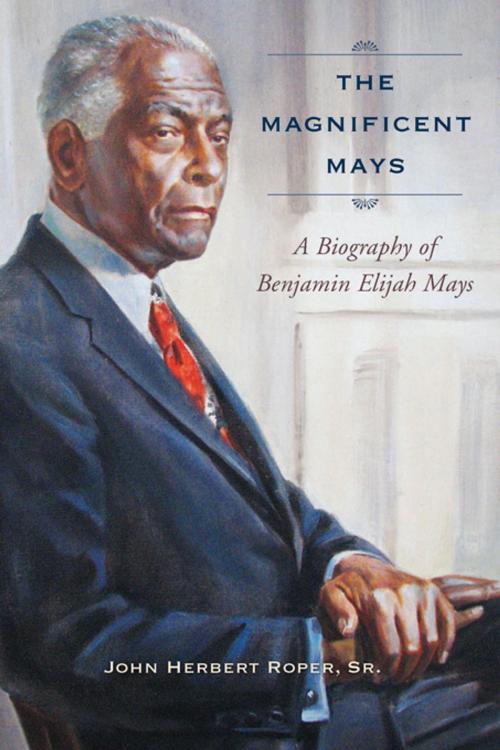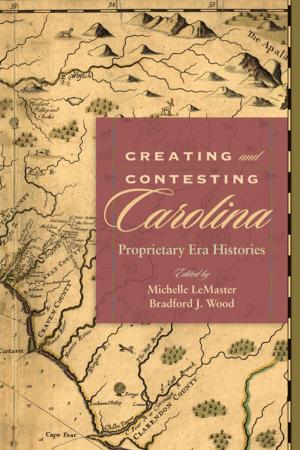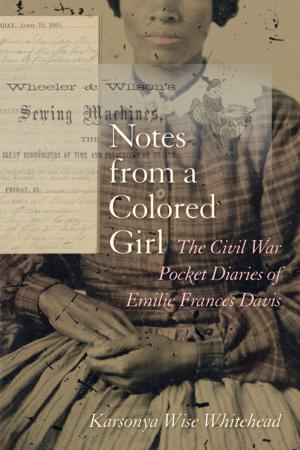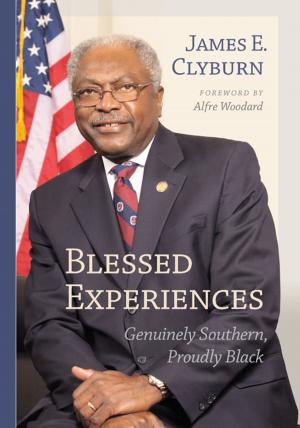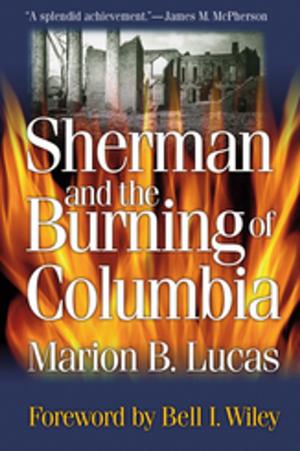The Magnificent Mays
A Biography of Benjamin Elijah Mays
Nonfiction, Social & Cultural Studies, Social Science, Cultural Studies, African-American Studies, Biography & Memoir, Reference| Author: | John Herbert Roper Sr. | ISBN: | 9781611171846 |
| Publisher: | University of South Carolina Press | Publication: | August 15, 2012 |
| Imprint: | University of South Carolina Press | Language: | English |
| Author: | John Herbert Roper Sr. |
| ISBN: | 9781611171846 |
| Publisher: | University of South Carolina Press |
| Publication: | August 15, 2012 |
| Imprint: | University of South Carolina Press |
| Language: | English |
Civil rights activist, writer, theologian, preacher, and educator, Benjamin Elijah Mays (1894–1984) was one of the most distinguished South Carolinians of the twentieth century. He influenced the lives of generations of students as a dean and professor of religion at Howard University and as longtime president of Morehouse College in Atlanta. In addition to his personal achievements, Mays was also a mentor and teacher to Julian Bond, founder of the Student Nonviolent Coordinating Committee; future Atlanta mayor Maynard Jackson; writer, preacher, and theologian Howard Washington Thurman; and the Reverend Martin Luther King, Jr. In this comprehensive biography of Mays, John Herbert Roper, Sr., chronicles the harsh realities of Mays’s early life and career in the segregated South and crafts an inspirational, compelling portrait of one of the most influential African American intellectuals in modern history.
Born at the turn of the century in rural Edgefield County, South Carolina, Mays was the youngest son of former slaves turned tenant farmers. At just four years of age, he experienced the brutal injustice of the Jim Crow era when he witnessed the bloody 1898 Phoenix Riot, sparked by black citizens’ attempts to exercise their voting rights.
In the early 1930s Mays discovered the teachings of Mohandas Gandhi and traveled to India in 1938 to confer with him about his methods of nonviolent protest. An honoree of the South Carolina Hall of Fame and recipient of forty-nine honorary degrees, Mays strived tirelessly against racial prejudices and social injustices throughout his career. In addition to his contributions to education and theology, Mays also worked with the National Urban League to improve housing, employment, and health conditions for African Americans, and he played a major role in the integration of the Young Men’s Christian Association (YMCA).
With honest appreciation and fervent admiration for Mays’s many accomplishments and lasting legacy, Roper deftly captures the heart and passion of his subject, his lifelong quest for social equality, and his unwavering faith in the potential for good in the American people.
Civil rights activist, writer, theologian, preacher, and educator, Benjamin Elijah Mays (1894–1984) was one of the most distinguished South Carolinians of the twentieth century. He influenced the lives of generations of students as a dean and professor of religion at Howard University and as longtime president of Morehouse College in Atlanta. In addition to his personal achievements, Mays was also a mentor and teacher to Julian Bond, founder of the Student Nonviolent Coordinating Committee; future Atlanta mayor Maynard Jackson; writer, preacher, and theologian Howard Washington Thurman; and the Reverend Martin Luther King, Jr. In this comprehensive biography of Mays, John Herbert Roper, Sr., chronicles the harsh realities of Mays’s early life and career in the segregated South and crafts an inspirational, compelling portrait of one of the most influential African American intellectuals in modern history.
Born at the turn of the century in rural Edgefield County, South Carolina, Mays was the youngest son of former slaves turned tenant farmers. At just four years of age, he experienced the brutal injustice of the Jim Crow era when he witnessed the bloody 1898 Phoenix Riot, sparked by black citizens’ attempts to exercise their voting rights.
In the early 1930s Mays discovered the teachings of Mohandas Gandhi and traveled to India in 1938 to confer with him about his methods of nonviolent protest. An honoree of the South Carolina Hall of Fame and recipient of forty-nine honorary degrees, Mays strived tirelessly against racial prejudices and social injustices throughout his career. In addition to his contributions to education and theology, Mays also worked with the National Urban League to improve housing, employment, and health conditions for African Americans, and he played a major role in the integration of the Young Men’s Christian Association (YMCA).
With honest appreciation and fervent admiration for Mays’s many accomplishments and lasting legacy, Roper deftly captures the heart and passion of his subject, his lifelong quest for social equality, and his unwavering faith in the potential for good in the American people.
